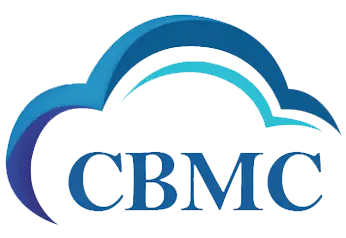The construction sector in Pakistan is growing fast. New roads and bridges need skilled experts. The Pakistan Engineering Council oversees these standards. This body ensures that only qualified people work on big projects. For a young graduate, the first step is clear. You must secure your legal standing through the council. This credential acts as a shield for your career. It proves your skills meet national safety and technical standards. Without it, you cannot legally practice engineering in the country. This guide helps you navigate the system smoothly.
Why PEC Registration for Engineers Matters
A license is more than just a piece of paper. It is a badge of honor. Major firms only hire those with valid credentials. This rule applies to both private and public sectors. Government jobs strictly require this certification. It also protects your professional rights. The council sets the pay scales and work conditions. Being part of this database opens doors to mega projects. You can work on dams or high-speed railways.
How to Apply for PEC Registration for Engineers
The process is now simpler than before. You do not need to visit the offices often. Most steps happen through a digital portal. First, you must have your original degree. It should be from an accredited university. You will also need your final transcripts. Keep your national identity card ready as well. A blue background photo is a standard requirement. Once you have these, you can start the journey.
Steps for Pec Registration for Engineers Online
The digital age has made filing easy. You can complete the task from home. Follow these simple steps to begin.
- Visit the official website of the council.
- Find the section for new user sign-up.
- Enter your basic details to create an account.
- Verify your email address through the link sent.
- Fill out the detailed application form carefully.
- Upload all the required scanned documents.
- Generate the fee challan from the portal.
- Pay the fee at the designated bank branches.
After payment, upload the receipt to the system. The council will then review your data. This check ensures your degree is authentic. They also verify your university status.
Navigating the PEC Login Portal
Accessing your profile is vital for updates. You should keep your password secure. The PEC login area allows you to track your status. You can see if your card is ready. It also shows if there are any errors in your file. If the system rejects a photo, you can fix it here. This portal is your primary link with the council. Always use a stable internet connection when logging in. This prevents data loss during the upload process.
Essential PEC Engineer Verification Steps
Verification is a key part of the system. It builds trust between engineers and employers. Firms use this tool to check your record. They enter your registration number to see your profile. This prevents fraud in the industry. It also helps in shortlisting candidates for big tenders. You should ensure your contact details are always current. A verified profile carries more weight in the job market. It shows you are an active member of the community.
Managing PEC Registration for Engineers Login
Maintaining your account is a long-term task. You might need to update your higher degrees. If you finish a master’s degree, add it here. This makes your profile more attractive. Use the PEC registration for engineers login to add certificates. This keeps your record fresh for recruiters. You can also change your mailing address here. This ensures your physical card reaches the right place. This protects your professional identity from misuse.
Importance of PEC Registration Renewal Online
Your registration is not permanent. It usually stays valid for one to three years. You must renew it before it expires. The PEC registration renewal online feature is very handy. It saves you from late fees and penalties. If you miss the date, your license becomes inactive. You cannot sign official documents without a valid card. Renewal often requires specific professional credit points. These points come from attending workshops and seminars. This ensures you keep learning new trends.
How Our Firm Helps You Succeed
We understand that the process can feel complex. CBM Consultants offers expert guidance for engineers. We help you prepare your documents correctly. Our goal is to let you focus on your work. We handle the paperwork for your peace of mind.
| Service Type | Key Features |
| Document scrutiny | We check for errors before you submit. |
| Portal support | Help with login and password recovery. |
| Renewal reminders | We alert you before your card expires. |
| Profile enhancement | Help in adding higher degrees to your file. |
Unlocking Careers in Infrastructure
Pakistan is investing billions in its infrastructure. These projects need thousands of civil and electrical experts. Mechanical and chemical engineers are also in high demand. Having a valid license puts you first in line. You can work with global construction giants. These roles offer high salaries and great growth. Your registration is the key to these high-stakes roles. It proves you are ready for the challenge. Start your application today to secure your future.
Conclusion
The engineering field is competitive but rewarding. Your legal status is your greatest asset. Do not delay your registration after graduation. The council provides a framework for excellence. It connects you with a vast network of peers. Follow the steps mentioned to join this elite group. Keep your profile updated and stay active. The infrastructure of tomorrow is in your hands. Build it with the right credentials by your side.




